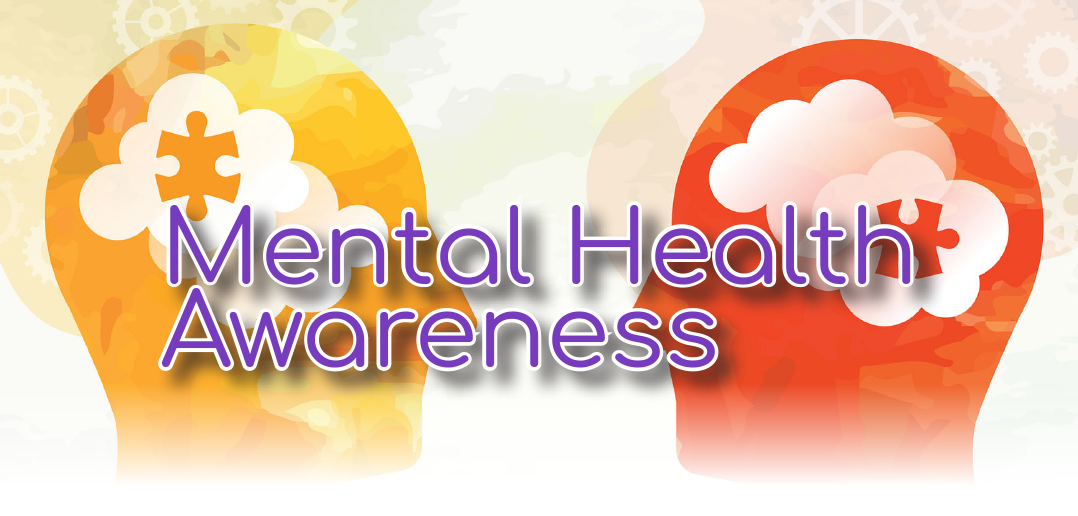Mental Health Awareness
Mental Health Awareness Day Should Be Every Day!
About 44 million American adults experience a serious mental-health condition in a given year, including 46% of teenagers, and 13% of children—but those numbers have been blown out of the water by the exponential increase in mental-health disorders amidst the pandemic of 2020. What’s more, according to a report in the October 9 Journal of the American Medical Association, there is mounting evidence that a “second wave” of spiking mental-health and substance-abuse disorders is “imminent” in COVID’s wake, further overwhelming the already-stressed mental-health system, including access problems for some of the most vulnerable people.
“We all need to support all of the members of our community and recognize that mental health is a part of it,” said A Better Way Therapy (abetterwaytherapy.com) Executive Director Bruce Hugunin. “It is hard to find any family who hasn’t had mental-health issues affect family members. There is a big need for treatment and services in the Omaha and surrounding communities, and with COVID-19 and the recent election, we have seen a spike in anxieties, depression, and alcohol and drug abuse.”
A Better Way Therapy has therapists with different specialties, so they can help with just about every mental-health issue. That includes everything from family therapy to parent-child interaction therapy, play therapy, domestic-violence counseling, anger management, depression, anxiety, ADHD and ADD, victim abuse and other trauma, grief, truancy, oppositional defiant disorder, parent counseling, adjustment issues and life changes, and more. Bruce told us that he believes the stigma surrounding mental-health illness has improved in recent years, thanks to more public discussion, including by actors and athletes who have stepped forward to tell their own struggles with it. More and more, people understand that it’s important to get that help.
“Our therapists help clients deal with their mental-health issues and find ways to move forward with life, even if that means it is different that it was in the past,” Bruce said. “We try to help clients learn how to stay safe and still find things they enjoy doing, as well as looking forward to a bright future. It is a sign of strength to admit that you could use help and not have to face issues alone. The support you get from therapists can show you the way to be happier and more fulfilled.”
New Barriers
While there certainly has been increased awareness about mental health in recent years, there’s plenty of room for improvement, according to Clearwater Counseling, P.C. (clearwatercounselingpc.org) Co-owner Kayla Leddy, MS, LIMHP, LIPC, CA. Clearwater therapists work with clients of all ages, treating a variety of mental health diagnoses, including depression, relationship issues, grief/loss/trauma, addiction and recovery, co-dependency, anxiety and phobias, parenting problems, sexual abuse and incest, physical abuse and violence, and more.
“Across the nation, a spotlight has been put on mental health during COVID-19, as mental health diagnoses have been on the rise since the start of the pandemic,” Kayla said. “While it’s certainly a very devastating and stressful time for our nation, we are glad people are talking about mental health and bringing this important topic to the forefront. The pandemic has created new barriers for people already suffering from mental illness and substance use disorders. For instance, the increase in social isolation and loneliness can lead to poor mental health. Many have also lost their jobs, which is also associated with increased depression, anxiety, distress, and low self-esteem.”
What’s more, Kayla explained, we’re seeing poor mental health due to burnout among frontline workers and increased anxiety or mental illness among those with poor physical health. The stigma surrounding mental health as “being labeled with a diagnosis” unfortunately influences people’s decision against seeking assistance.
“Not every single person in therapy has a major mental illness diagnosis,” Kayla said. “Thus, diagnosing mental health symptoms should be viewed the same way as cold or fl u symptoms are viewed.”
A Holistic Approach
Traditional counseling and therapy is a well-proven avenue for treating mental-health conditions, but it’s not the only option. Reveal & Heal (revealandheal.coach) Owner Emily Gilli addresses mental health from another paradigm,
providing coaching and functional-medicine health coaching services to help individuals through a wide range of personal and/or professional issues. She accomplishes this by helping her clients analyze their current situation, identify obstacles or limiting beliefs that hold them back, and create strategies and goals to help them reach their desired outcome.
“While I believe the pandemic has shed light on mental-health awareness, I do believe there is, in general, a low level of mental-health awareness,” Emily said. “There is even less awareness around holistic treatment for a variety of mental-health diagnoses. We have come to rely on pills to fix us, but in many cases, there are proven self-management skills that can get us where we want to go.”
Emily believes in and shares her knowledge about lifestyle, or holistic medicine, which taps things like diet, exercise, proper sleep, hygiene, and stress / thought management are used to relieve anxiety and depression and a host of other wellness challenges.
“In holistic medicine, there are no specialties,” she said. “Everything is connected. When we shift our own thought patterns from ‘I need the medical system to treat me’ to ‘I own my body and I know what it needs to be well,’ we will see a dramatic decrease in not only mental-health issues, but chronic illness.”
We can all play a role in improving mental health by becoming educated about it. If you or someone you know is struggling, don’t be afraid to reach out to some of the professional service providers featured here. Become part of the change.




